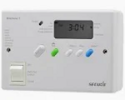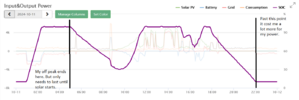As far as I have worked out, the valves used in the Radio 4 long wave transmitter are no longer made, so once the valve in use now fails, it is good by radio 4 long wave, there is no fixed date as to when it will be turned off.
There is no requirement to have a "Smart" meter, but there is also no requirement to offer split tariff, so they can say sorry, you can't have Economy 7 any longer, so in real terms to get split tariff you need a "Smart" meter.
But Economy 7 is a tariff, not a system, many years ago we had the "White" meter, and all using the off peak came from one meter, and all needing 24/7 power came from another meter. But this resulted in not being able to use dish washer, washing machine, and tumble drier from the off peak supply, so there have been changes.
What is of course of interest to you, is will the equipment you have work with what ever replaces your teleswitch?
I have a problem, as not a clue what time the "Smart" meter uses, BST or UTC, I have 5 hours at cheap rate, and I don't need 5 hours, so I do not start using the off peak until 1 am and I stop at 5 am, so does not matter either time, still only using off peak. I am only charging a battery off peak, my heating is oil.
Time switches like this

for the immersion heater have changed over the years, the old switch with two supplies, is now hard to find, the storage radiators tend today to have a trigger wire to turn them on, and often people now have Economy 10 where one gets a boost through the day.
It seems tariffs are local, so the tariff I use may not be available in England, so to say do this or that, often does not help, as may not be available to you, you may have something better where you live.
I had intended to move from British Gas to Octopus, as told they do better deals, but seems they want the details from ones EV and EV charging point before they will give you the EV rate, where British Gas don't ask for the details. And the 7 hour off peak from British Gas is far more expensive to the 5 hour off peak I have, which is called an EV rate.
So for me

I know when my home starts to use peak power, between 4 pm and never depending on sun light, but not so easy for you, to store energy in a battery means it does not leak, but expensive to store, to store in iron ore bricks, bound with clay or cement, you in most cases can't stop the energy escaping, there were some homes with central storage, and fans to blow it around when required, i.e. true central heating, but most used silly storage radiators, which leaked energy out even when turned to lowest output.
So the problem is for most people they only want a back ground heat 11 pm to 6 pm and the storage radiators has run out just about when you want the heat at 6 pm, assuming sleeping at night and at work during the day. So even when off peak is 8.95p and peak 31.31p per kWh the 29.57p per kWh 24/7 can work out cheaper with panel heaters due to losses during the day.
But it is mainly down to how well the home is insulated, there are two methods of heating the home, one is maintain the home 24/7 at a set temperature, the other is to look for fast recovery times. What you need to do is work out once the 7 hours are where they should be, will it keep your home warm?
You have time to work out what you will need, use that time, and get home set up as required.



